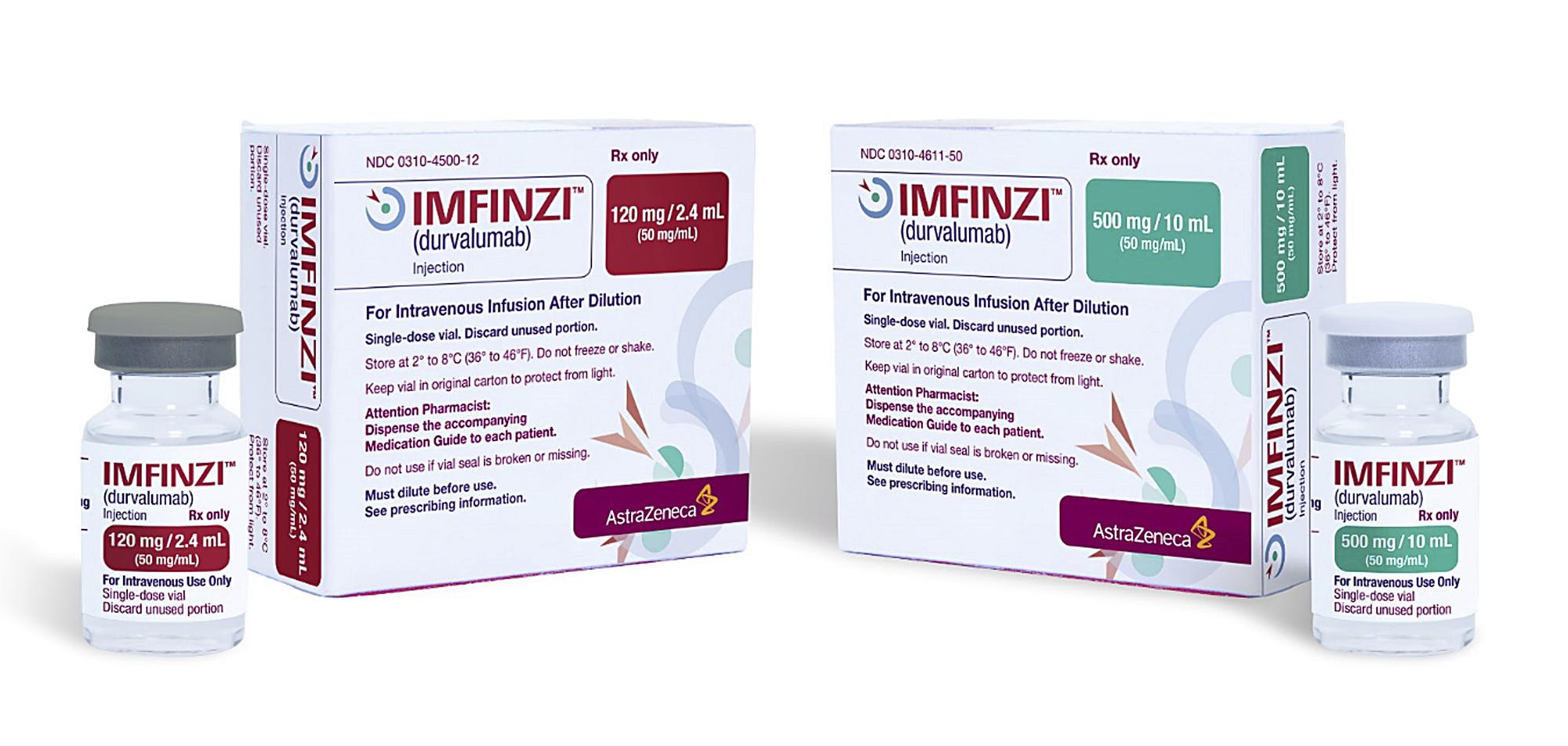AZ's Imfinzi approved in early lung cancer in China

The Chinese regulator has approved AstraZeneca’s Imfinzi in an early form of lung cancer after treatment with chemotherapy and radiation.
AstraZeneca said that China’s National Medical Products Administration (NMPA) approved Imfinzi in unresectable, stage III non-small cell lung cancer, whose disease has not progressed following concurrent platinum-based chemotherapy and radiation therapy.
Approval of Imfinzi (durvalumab) is based on results from the primary analysis of progression-free survival and overall survival from the phase 3 PACIFIC trial.
This has been the basis for successful regulatory filings in the US and Europe, where Imfinzi is already approved in this indication.
Stage III lung cancer has not yet spread throughout the body, and the majority of patients with this form of the disease are treated with curative intent.
It represents about a third of NSCLC cases and was estimated to affect nearly 200,000 patients in 2015 in China, France, Germany, Italy, Japan, Spain, UK and US.
The majority of Stage 3 NSCLC patients are diagnosed with unresectable tumours, and before approval of Imfinzi in this setting, no new treatments other than chemo and radio therapy had been available to patients for decades.
Imfinzi is a PD-L1 class immunotherapy, that binds to the PD-L1 ligand on the surface of T-cells, countering the tumour’s immune-evading tactics and allowing the body’s immune system to attack the cancer.
It is also approved in advanced bladder cancer in 11 countries including the US.
The stage 3 NSCLC indication is important for AZ because Imfinzi has not produced results as a monotherapy in first line non-small cell lung cancer, a lucrative indication where Merck & Co’s Keytruda has set new standards of care.
However Imfinzi has scored a trial victory in first line NSCLC in combination with AZ's CTLA-4 class drug tremelimumab, although detailed results are not yet available.
AZ is also testing as a monotherapy and in combination with tremelimumab as a treatment for patients with NSCLC, small cell lung cancer, bladder cancer, head and neck cancer, liver cancer, biliary tract cancer, cervical cancer and other solid tumours.












